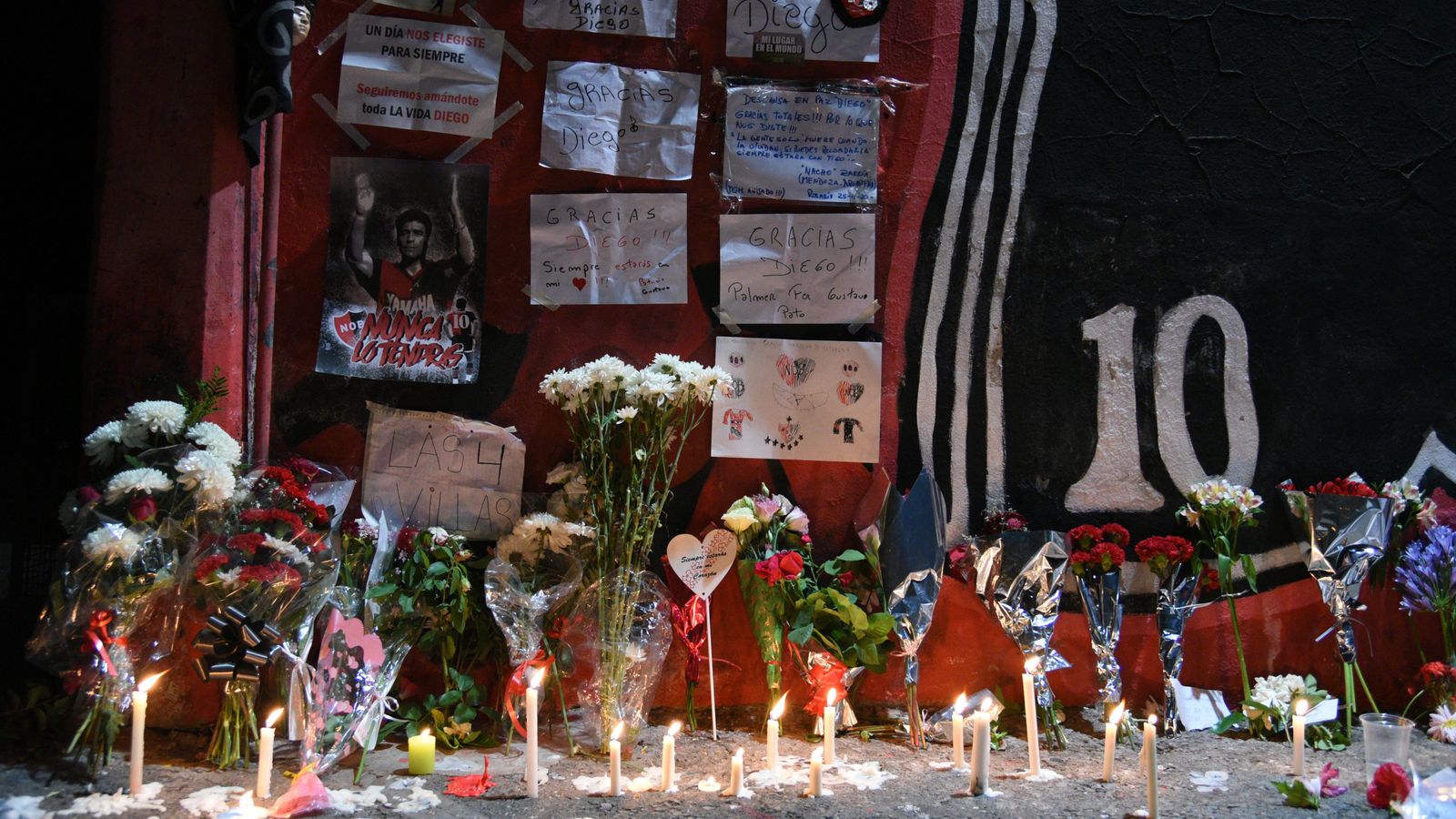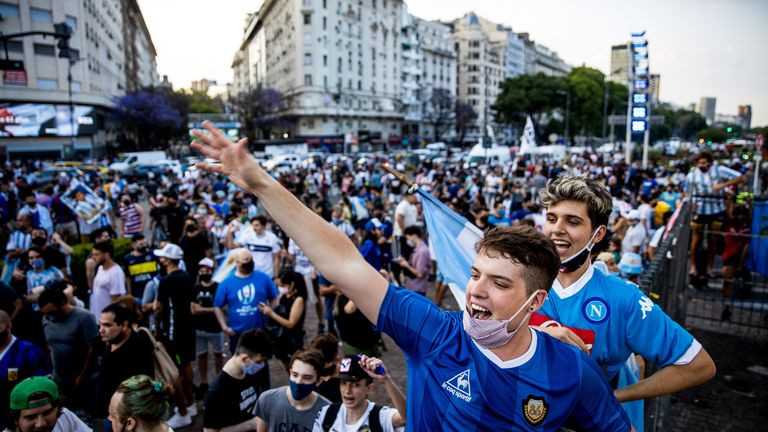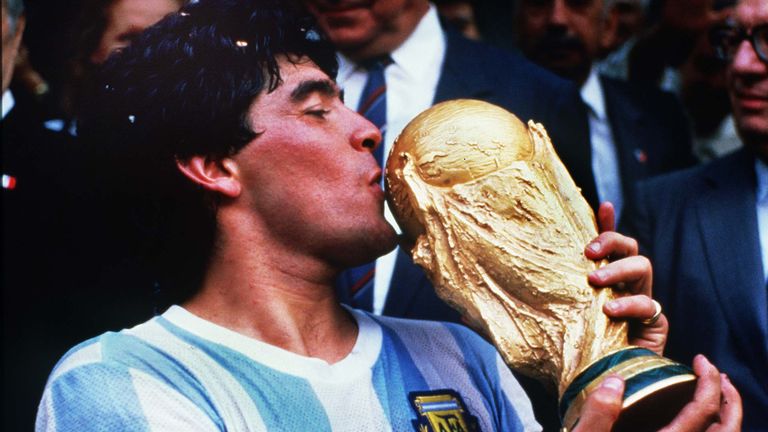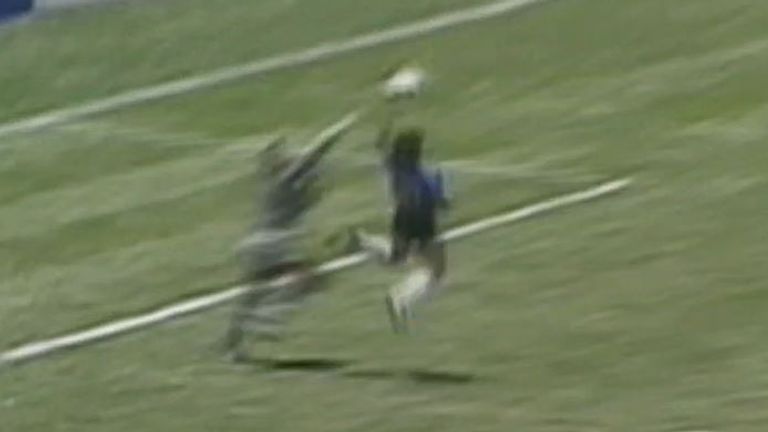Argentina’s president has said there will be three days of national mourning following the death of the country’s most famous footballer.
Diego Maradona, who captained the 1986 World Cup-winning team, died from a heart attack at the age of 60 on Wednesday.
Argentina’s President Alberto Fernandez said: “Diego was Argentina in the world. He gave us joy and we will never be able to repay him for so much joy.”
Mr Fernandez issued a decree for three days of national mourning and offered the presidential palace for the footballer’s funeral.
In Argentina, fans gathered in spots that are linked to the life of the legendary player, including the small home where he was raised in the Villa Fiorito area, and the stadium of Argentinos Juniors, where he started his career in 1976.
At the stadium, fans put candles and flowers alongside a wall that surrounded the pitch.
Dante López, a doctor, said: “I am touched. I can’t understand it, I can’t see the reality. Diego will never die, today is the birth of the Maradona myth.”
Also at the stadium was Mariano Jeijer, who said he did not want to be sad at home, adding: “Diego is a symbol of being Argentinian. He is someone that made us very happy”.
At the house, people began painting a mural of Maradona on the wall, despite that fact that the property no longer belongs to the footballer’s family.
The star, who had surgery for a subdural haematoma a few weeks ago, died at his last home on the outskirts of Buenos Aires, according to Argentinian media.
A subdural haematoma is a serious condition where a blood clot develops between the skull and the surface of the brain. It is usually caused by a head injury.
Maradona was also admitted to hospital recently because he was “not well psychologically”, described as being “very sad” and not wanting to eat.
As well as the World Cup triumph in 1986, when Argentina beat West Germany in the final, Maradona also led his country to the final of the Italia 90 tournament, and managed them in South Africa in 2010.
His international playing career ended after he failed a drugs test at the 1994 World Cup in the United States.
He was also banned from football in 1991 after testing positive for cocaine while playing for Italian side Napoli, where he won two Serie A titles.
His “Hand of God” goal against England in the 1986 quarter-finals – when he pushed the ball into the net with his hand – was followed by a remarkable solo effort, in which he dribbled past half the England team.
Just 14 years later, the man born in a shanty town on the southern outskirts of Buenos Aires – the fifth of eight children – nearly died of cocaine-induced heart failure.
In 2005, he had a gastric bypass operation to lose weight, and was treated in 2007 for life-threatening alcohol-induced hepatitis.
Given his first football as an infant, he slept with it under his arm and was discovered in street kickabouts by the scout for Argentinos Juniors, making his league debut 10 days before his 16th birthday.
At 17, he just missed being included in Argentina’s 1978 World Cup-winning squad at home.



